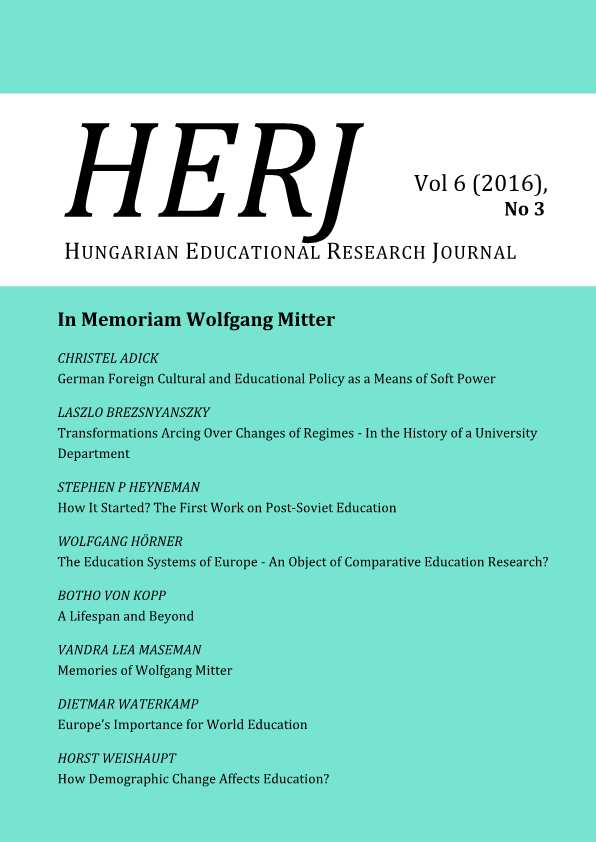German Foreign Cultural and Educational Policy as a Means of Soft Power
German Foreign Cultural and Educational Policy as a Means of Soft Power
Author(s): Christel AdickSubject(s): Education
Published by: Hungarian Educational Research Association (HERA)
Keywords: Comparative Education; International Education; International Educational Transfer; Foreign Cultural Policy; Student Exchange; Cultural Institutes; Foreign Schools; Goethe Institute; German Schools Ab
Summary/Abstract: The main focus of the following article is to highlight “foreign cultural and educational policy” as a very specific variant of educational transfer. Many countries have created specific ways and institutions to further their cultural and educational interests abroad by various cultural, educational and scientific institutes. This will be discussed by taking the example of some of the core institutions of the German Foreign Cultural and Educational Policy, namely the Goethe-Institute, German Schools Abroad and the German Academic Exchange Service, which have branches in a lot of countries around the world. These will be described and analyzed as instruments of foreign policy by applying the interpretative concept of ‘soft power’ (as propelled by Joseph Nye), also showing that their proclaimed reference to ‘cooperation’ may be considered as more or less rhetoric because it is likely to obfuscate the political self-interests behind it.
Journal: HERJ Hungarian Educational Research Journal
- Issue Year: 6/2016
- Issue No: 3
- Page Range: 11-22
- Page Count: 12
- Language: English

